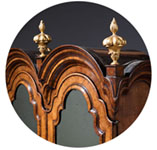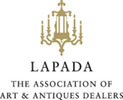Important 17th Century Charles II Marquetry Olive Oyster Lace Box, Circa 1680
Sold
Request Information
Follow Us
Important 17th Century Charles II Marquetry Olive Oyster Lace Box, Circa 1680
A fine and rare 17th century William and Mary olive oyster marquetry lace box, circa 1670-1690. England
Attributed to Gerrit Jensen.
The moulded and holly-banded top has the most wonderful and free-flowing marquetry depicting spring flowers and green foliage (died ox bone), centred by an oval break arch of olive oysters, banded in holly and each quadrant with a sprig of marquetry, all on an ebony ground.
The frieze is decorated to the face with fine oval reserves of marquetry on either side of the brass shield escutcheon. Raised on a cross-grain olive convex moulding.
The box opens to reveal what appears to be the original fitted interior consisting of multiple sections, a lidded compartment, two concealed drawers and a place to store notes.
It should be noted that very few fine marquetry lace boxes from the 17th century are known and this example is, at present, the benchmark.
Gerrit Jensen was one of the foremost cabinet-makers of his day and worked in London from his premises in St. Martin’s Lane. Jensen served the English crown since the reign of Charles II as the accounts of the Royal Household record a payment to him in 1680, for furniture which King Charles II commissioned as a royal gift for the King of Morocco. In 1689, Jensen was appointed royal cabinetmaker to King William III and Queen Mary – ‘Cabinet maker in Ordinary’ to the Crown; and he retained his royal appointment throughout the reign of Queen Anne, supplying furniture for St. James’s Palace, Hampton Court and Kensington Palace. In addition to the Royal family and the Dukes of Devonshire, Jensen also attracted commissions from senior members of the nobility, including the Dukes of Richmond, Hamilton, Montagu and Somerset, collaborating with other leading artists and craftsmen on the decoration of some of the greatest town and country houses in England. Jensen was one of several artist-craftsmen of foreign background employed at the English court, and his work shows a strong Continental influence, reflecting the fashionable French court styles of Pierre Golle, André Charles Boulle and Daniel Marot earning him the title ‘the English Boulle’.
Condition
Good. Wear consistent with age and use. Superb original condition. The box is of very good colour and is richly patinated.
Dimensions
Height: 14 cm (5.52 in)
Width: 58.5 cm (23.04 in)
Depth: 44 cm (17.33 in)
PREVIOUSLY SOLD
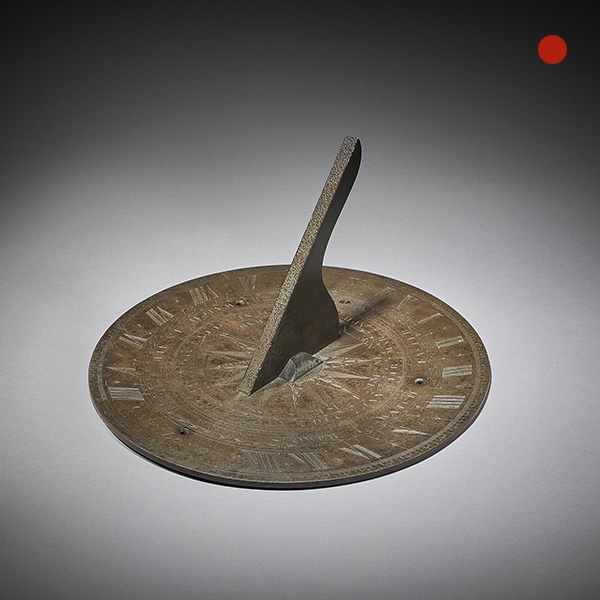
Early 19th Century English Bronze Horizontal Sundial by Cary of London
Early 19th Century English Bronze Horizontal Sundial by Cary of London £2,450 Follow UsEarly 19th Century English Bronze Horizontal Sundial by Cary of London An early 19th-century horizontal sundial by Cary London. This 12” diameter bronze...
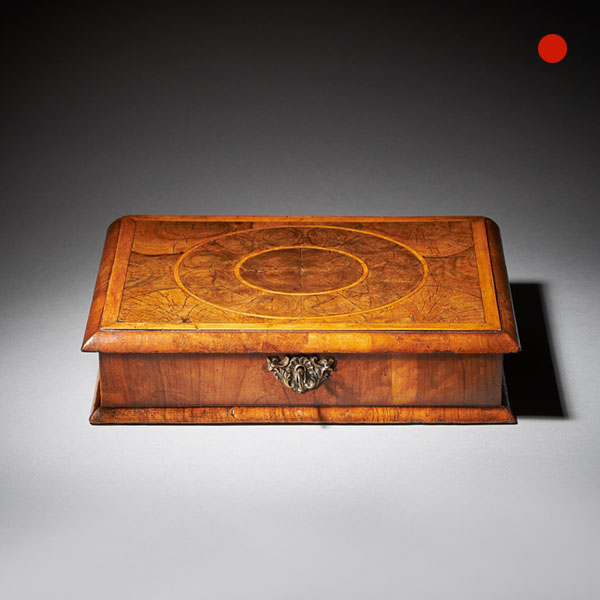
A Fine William and Mary 17th-Century Olive Oyster Lace Box
A Fine William and Mary 17th-Century Olive Oyster Lace Box Sold Follow UsA Fine William and Mary 17th-Century Olive Oyster Lace Box A Fine Late 17th Century Olive Oyster 'Lace Box' of Small Proportions. Circa 1680-1690 England. The...
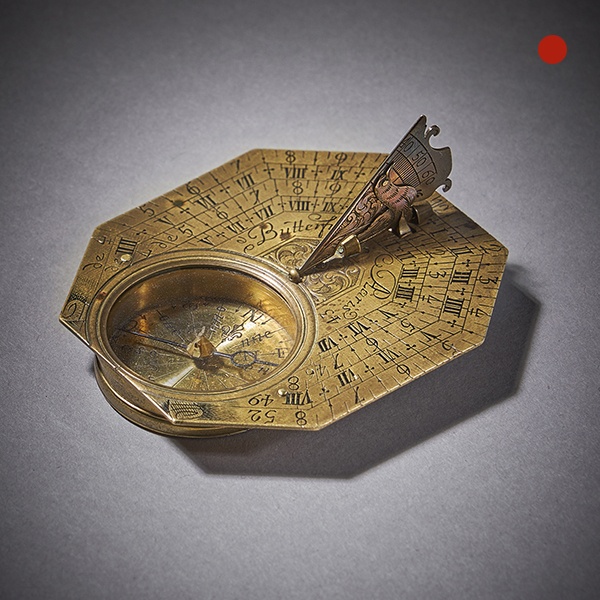
Fine Brass Pocket Sundial and Compass by Michael Butterfield Paris, circa 1700
Fine Brass Pocket Sundial and Compass by Michael Butterfield Paris Sold Follow UsFine Brass Pocket Sundial and Compass by Michael Butterfield Paris A fine brass Anglo-French octagonal pocket sundial with compass by Michael Butterfield, circa...
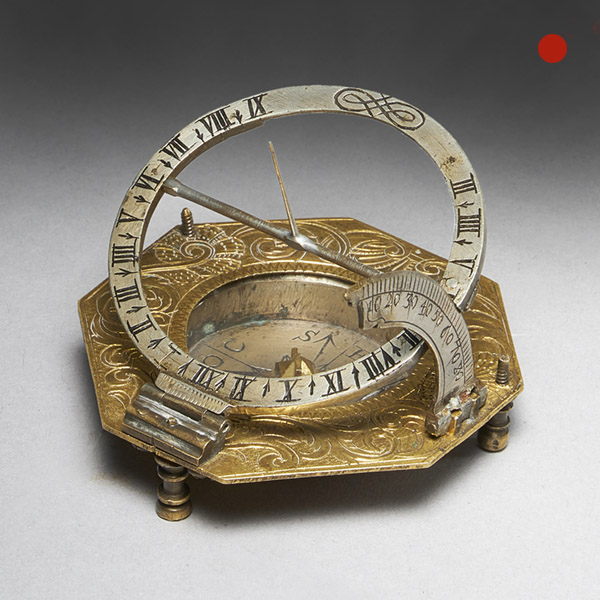
18th Century German Equinoctial Pocket Sundial and Compass by Ludwig Theodor
18th Century German Equinoctial Pocket Sundial and Compass by Ludwig Theodor SOLD Follow Us18th Century German Equinoctial Pocket Sundial and Compass by Ludwig Theodor From the first quarter of the 18th century - a German brass equinoctial...
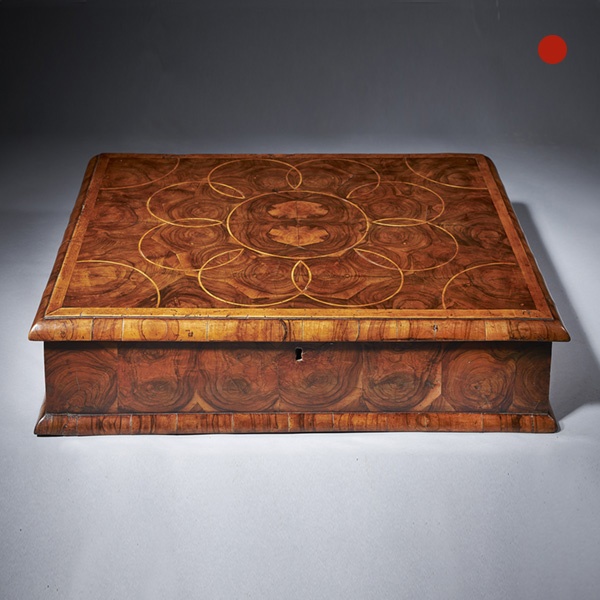
Fine and Rare Late 17th Century William and Mary Olive Oyster Lace Box
Fine and Rare Late 17th Century William and Mary Olive Oyster Lace Box Sold Follow UsFine and Rare Late 17th Century William and Mary Olive Oyster Lace Box A fine and rare late 17th century olive oyster 'lace box from the reign of King...
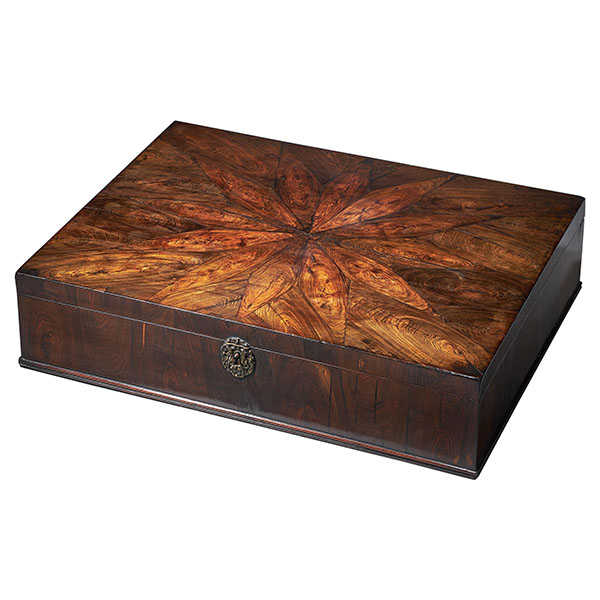
17th Century Charles II Cocuswood Lace Box, Circa 1660, England
17th Century Charles II Cocuswood Lace Box, Circa 1660, England SoldFollow Us17th Century Charles II Cocuswood Lace Box, Circa 1660, England An extremely rare and important Cocuswood oyster (Brya ebenus) lace box from the reign of Charles II,...

Early 19th Century English Bronze Horizontal Sundial by Cary of London
Early 19th Century English Bronze Horizontal Sundial by Cary of London £2,450 Follow UsEarly 19th Century English Bronze Horizontal Sundial by Cary of London An early 19th-century horizontal sundial by Cary London. This 12” diameter bronze...

A Fine William and Mary 17th-Century Olive Oyster Lace Box
A Fine William and Mary 17th-Century Olive Oyster Lace Box Sold Follow UsA Fine William and Mary 17th-Century Olive Oyster Lace Box A Fine Late 17th Century Olive Oyster 'Lace Box' of Small Proportions. Circa 1680-1690 England. The...

Fine Brass Pocket Sundial and Compass by Michael Butterfield Paris, circa 1700
Fine Brass Pocket Sundial and Compass by Michael Butterfield Paris Sold Follow UsFine Brass Pocket Sundial and Compass by Michael Butterfield Paris A fine brass Anglo-French octagonal pocket sundial with compass by Michael Butterfield, circa...

18th Century German Equinoctial Pocket Sundial and Compass by Ludwig Theodor
18th Century German Equinoctial Pocket Sundial and Compass by Ludwig Theodor SOLD Follow Us18th Century German Equinoctial Pocket Sundial and Compass by Ludwig Theodor From the first quarter of the 18th century - a German brass equinoctial...

Fine and Rare Late 17th Century William and Mary Olive Oyster Lace Box
Fine and Rare Late 17th Century William and Mary Olive Oyster Lace Box Sold Follow UsFine and Rare Late 17th Century William and Mary Olive Oyster Lace Box A fine and rare late 17th century olive oyster 'lace box from the reign of King...

17th Century Charles II Cocuswood Lace Box, Circa 1660, England
17th Century Charles II Cocuswood Lace Box, Circa 1660, England SoldFollow Us17th Century Charles II Cocuswood Lace Box, Circa 1660, England An extremely rare and important Cocuswood oyster (Brya ebenus) lace box from the reign of Charles II,...
YOU MAY ALSO LIKE
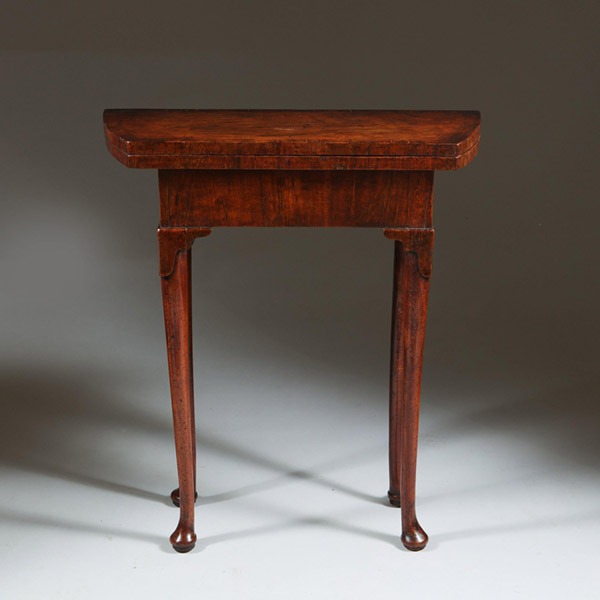
A Unique Early 18th Century Diminutive George I Figured Walnut Bachelors Table
A Unique Early 18th Century Diminutive George I Figured Walnut Bachelors Table £12,800Follow UsA...
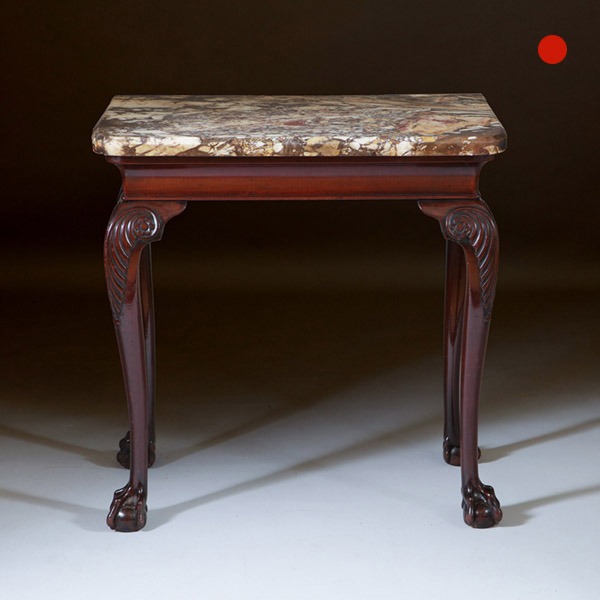
A Fine 18th Century George II Mahogany Marble Topped Console Table, Ireland
A Fine 18th Century George II Mahogany Marble Topped Console Table, Ireland SoldFollow UsA Fine...
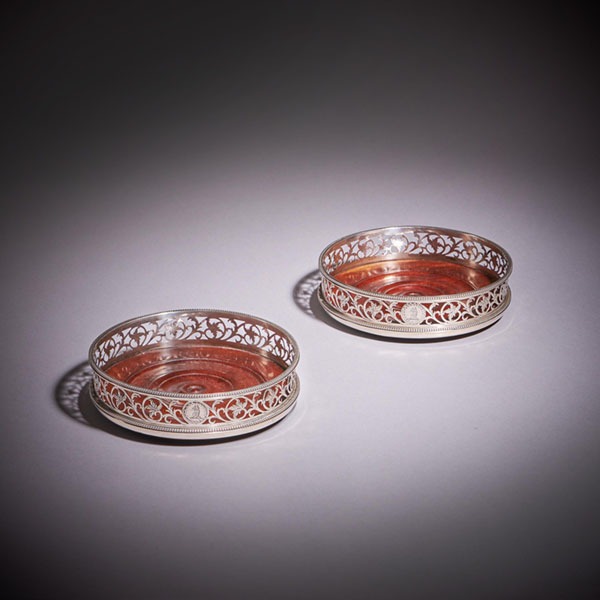
A Fine Pair of 18th Century George III Silver Engraved Open Fret Wine Coasters
A Fine Pair of 18th Century George III Silver Engraved Open Fret Wine Coasters £3,600Follow UsA...
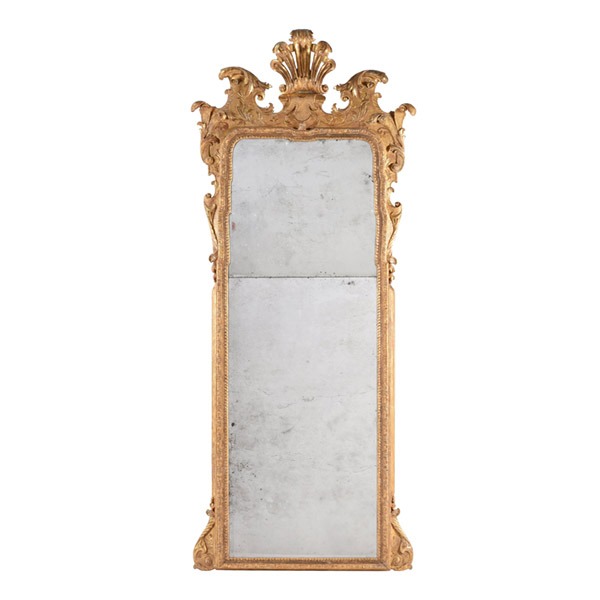
A Large 18th Century George I Gilt-Gesso Pier Glass, Attributed to John Belchier
A Large 18th Century George I Gilt-Gesso Pier Glass, Attributed to John Belchier £42,000Follow UsA...
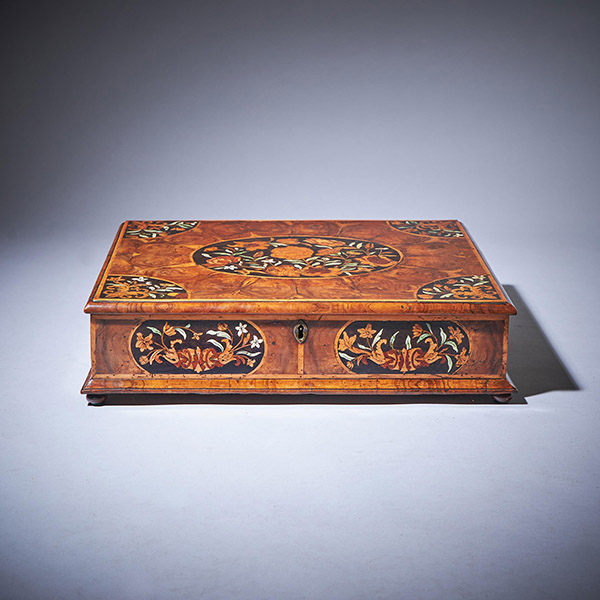
17th Century William and Mary Floral Marquetry Olive Oyster Lace Box, Circa 1685
17th Century William and Mary Floral Marquetry Olive Oyster Lace Box, Circa 1685 £16,000Follow...
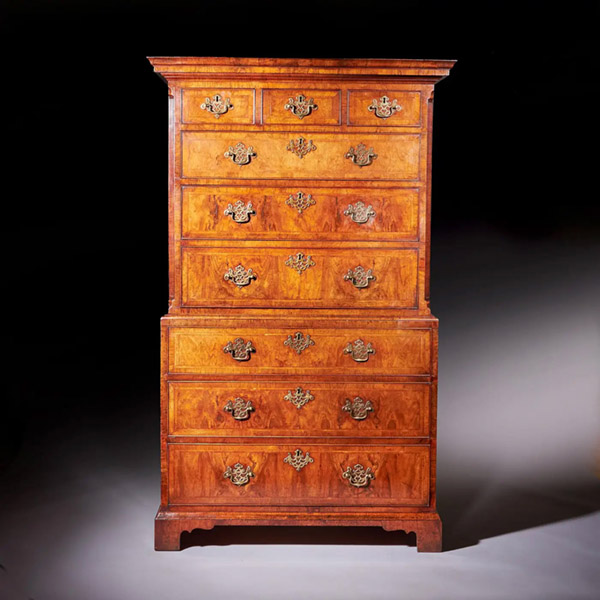
A Fine 18th Century George II Figured Walnut Chest on Chest or Tallboy, 1740
A Fine 18th Century George II Figured Walnut Chest on Chest or Tallboy, 1740 £14,000[wpforms_selector form_id="11387" _builder_version="4.22.1" _module_preset="default" custom_margin="-30px||||false|false" hover_enabled="0"...

A Unique Early 18th Century Diminutive George I Figured Walnut Bachelors Table
A Unique Early 18th Century Diminutive George I Figured Walnut Bachelors Table £12,800Follow UsA...

A Fine 18th Century George II Mahogany Marble Topped Console Table, Ireland
A Fine 18th Century George II Mahogany Marble Topped Console Table, Ireland SoldFollow UsA Fine...

A Fine Pair of 18th Century George III Silver Engraved Open Fret Wine Coasters
A Fine Pair of 18th Century George III Silver Engraved Open Fret Wine Coasters £3,600Follow UsA...

A Large 18th Century George I Gilt-Gesso Pier Glass, Attributed to John Belchier
A Large 18th Century George I Gilt-Gesso Pier Glass, Attributed to John Belchier £42,000Follow UsA...

17th Century William and Mary Floral Marquetry Olive Oyster Lace Box, Circa 1685
17th Century William and Mary Floral Marquetry Olive Oyster Lace Box, Circa 1685 £16,000Follow...

A Fine 18th Century George II Figured Walnut Chest on Chest or Tallboy, 1740
A Fine 18th Century George II Figured Walnut Chest on Chest or Tallboy, 1740 £14,000[wpforms_selector form_id="11387" _builder_version="4.22.1" _module_preset="default" custom_margin="-30px||||false|false" hover_enabled="0"...
